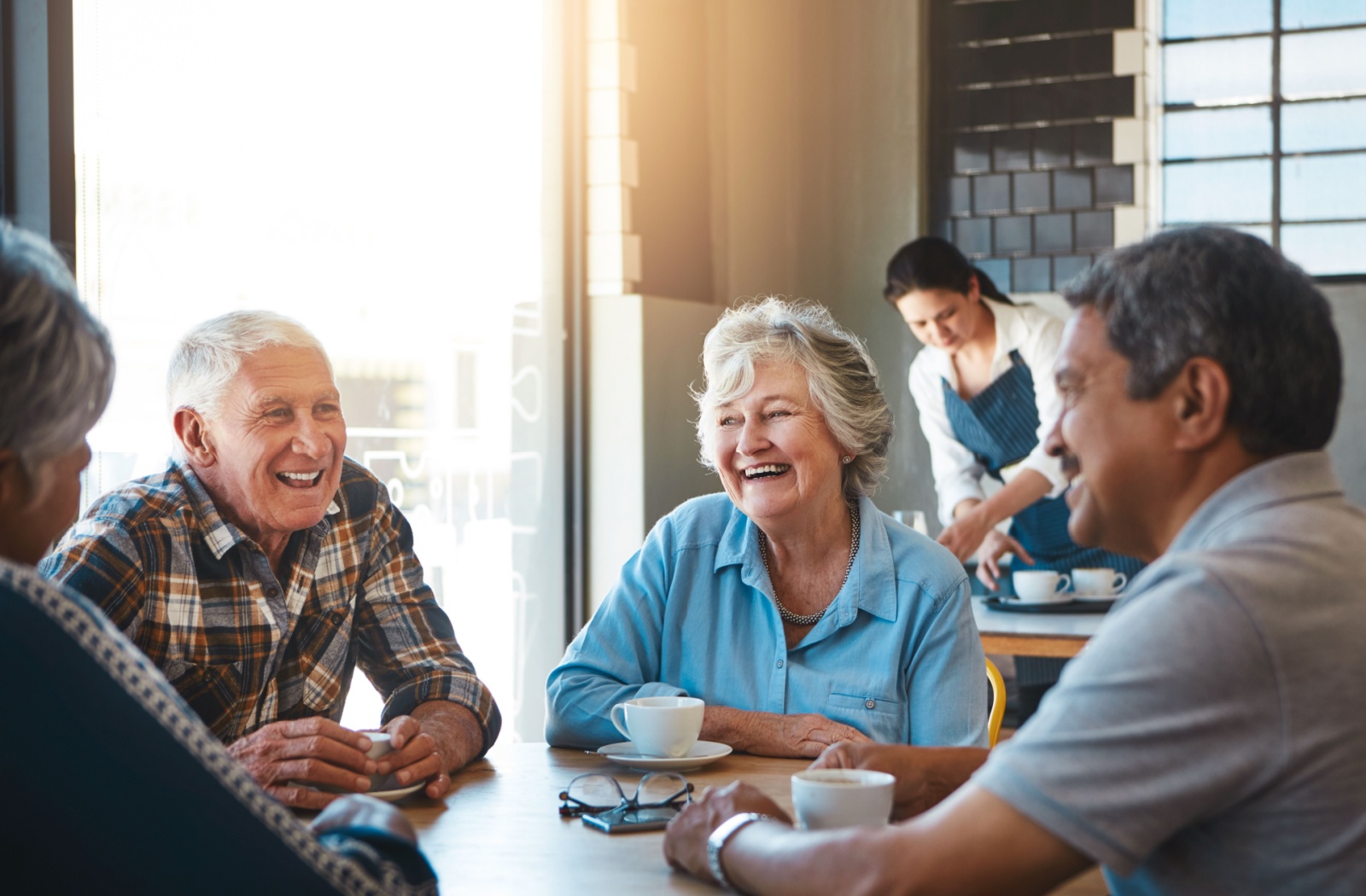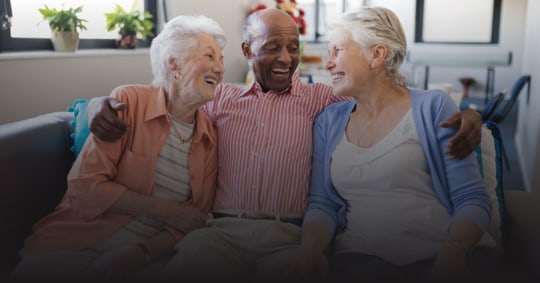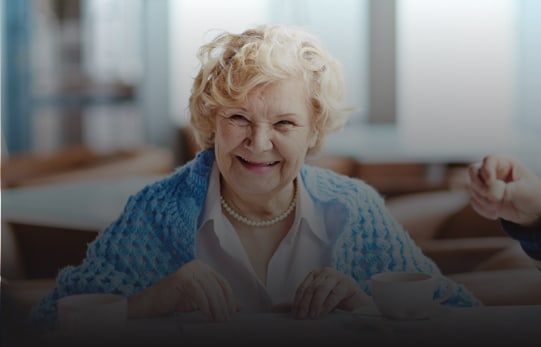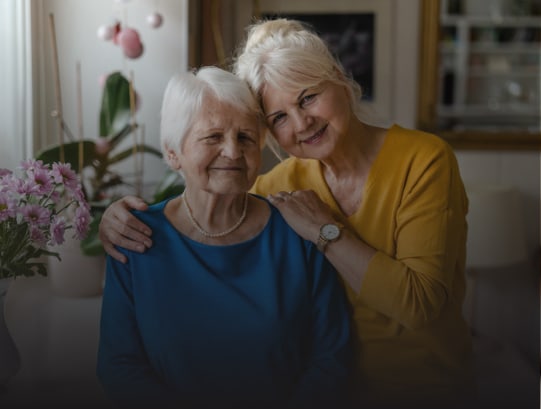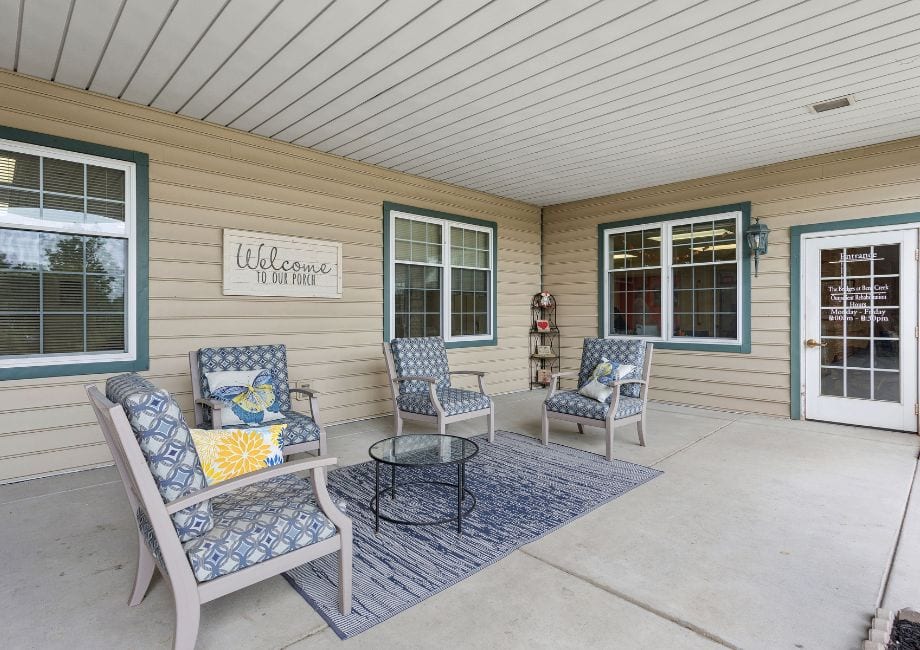Making friends and forging strong connections is an important part of quality of life—especially for older adults living alone. Your older loved ones deserve an active, vibrant, and social life, and socializing is a key part of this. Simple activities, like chatting with a neighbor or joining a hobby class, make a bigger difference than most people think.
Socializing is closely linked to all kinds of benefits, from better physical health to a stronger sense of purpose. Older adults who regularly connect with others often experience better mental clarity and overall well-being. Socializing can even lower the risk of cognitive decline while improving overall health and well-being, making it invaluable for older adults.
Why Seniors Need Social Connections
Maintaining social bonds is more than just emotionally rewarding. It’s a fundamental part of healthier aging. For many older adults, isolation is a serious issue, and it can have long-lasting effects on a person’s well-being.
Extended loneliness or lack of interaction can lead to:
- Increased risk of depression and anxiety
- Higher likelihood of chronic illnesses
- Weakened immune system
- Poorer physical health
Regular socialization isn’t just good for mental health—it strengthens the immune system, improves health and well-being, and can even lead to a stronger mind. A supportive, social environment can make a significant difference in a person’s quality of life.
How Socializing Affects Cognitive Health
Social interaction directly affects cognitive health. It keeps the mind engaged and active with every interaction. Just like physical exercise strengthens the body, mental stimulation exercises the brain. Simple interactions, like a chat over tea or even a short conversation with somebody nearby, boost memory and focus.
Social engagement also contributes to emotional well-being. A sense of belonging and connection encourages people to stay motivated and optimistic, which directly affects their overall outlook on life. It also helps them build a support system of caring individuals around them, which boosts mental health and peace of mind.
How Social Activity Boosts Cognitive Abilities
Everyday conversations work wonders for the brain. Speaking with others engages multiple cognitive functions at once, which strengthens the mind with every interaction.
During a conversation, the brain is constantly being challenged. Memory is tested when recalling past events. Focus is strengthened when actively listening to others. Comprehension comes into play when interpreting the tone and meaning of what’s being said. Even problem-solving skills get a workout, as you need to navigate through topics and choose what to say.
All these mental exercises encourage neuroplasticity, the brain’s ability to adapt and stay sharp. This means that a casual conversation is far more important than it might seem at first.
Barriers That Limit Senior Socializing
While social interactions are vital, they’re not always easy to maintain. Older adults face several barriers that can prevent them from forming or maintaining connections.
These include:
- Physical limitations such as mobility issues or chronic health conditions
- Relocation or living in isolated areas
- Lack of access to transportation
- Cognitive impairments like cognitive decline
- Fear of rejection or social anxiety
- Financial constraints limiting participation in social activities
Sometimes, it’s as simple as an emotional hurdle, like a fear of rejection or discomfort. When combined with any other factors, this can be extremely problematic. It creates a cycle of withdrawal and isolation.
So how can you help an older loved one overcome these barriers and socialize?
Tips for Helping an Older Loved One Socialize
Helping an older loved one socialize easier starts with understanding their needs. Begin by having an open conversation to learn what’s standing in their way—and what they value most in social activities.

Here are a few ways you can support their social engagement:
- Ask about their interests and explore hobbies or group activities they might enjoy.
- Address physical challenges by assisting with transportation or finding senior-friendly programs.
- Offer to attend events with them until they feel comfortable going on their own.
- Foster a positive atmosphere by encouraging and supporting their efforts without judgment.
Above all else, make sure to be patient. It can take time for a person to open up and be vulnerable. By learning what stands in their way, you can better support them in this journey.
Ideas for Senior Socialization
Once you know what stands in your loved one’s way, try pitching a new idea for hobbies or activities. Some popular senior-safe hobbies include:
- Gardening
- Walking groups
- Arts and crafts
- Book clubs
- Playing board games or puzzles
- Community classes or workshops
- Volunteering opportunities
Spend some time talking with your loved one and try finding a new activity that suits them. This could be an easy way to make socializing much more accessible to them!
A Vibrant, Social Life Awaits
Social connections are about more than just keeping older adults occupied. They bring valued moments, positive emotions, and a powerful boost to cognitive and emotional health. Your loved one deserves a vibrant, social life, after all—and our team at The Bridges at Bent Creek is happy to deliver.
In our community, we understand the deep impact of meaningful social opportunities. We’ve created an environment where older adults can thrive through supportive relationships, cognitive engagement, and new daily experiences. Schedule a tour with us today to see for yourself!

